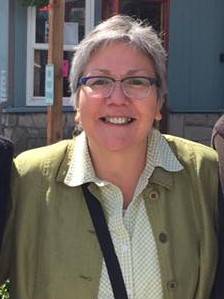Banding together, 16 Southeast tribes will push for a seat at the table in talks with Canada about mining issues on shared waters.
The United Tribal Transboundary Mining Work Group hired its first full-time employee, they announced in an Aug. 1 press release. One of her first tasks will be to secure the tribes a stronger voice in inter-governmental talks about a series of large Canadian mining projects upriver from salmon habitat on the Stikine, Unuk and Taku River watersheds.
Based out of Wrangell, coordinator Tis Peterman will head up efforts to raise the tribes’ voice in ongoing discussions over the mines. Peterman is working on a Memorandum of Understanding, which would give the tribes a position alongside the state of Alaska and British Columbia in meetings about the controversial mining projects.
Canada’s mining industry lacks regulation, she said.
“We want to be sitting at the table when these issues arise,” Peterman said in a Friday interview. “Ironically, today is the anniversary of Mount Polley,” she added, referencing the 2014 failure of a mine tailings storage facility which unleashed 26 billion tons of waste water into the Fraser River in British Columbia. “Something has got to change.”
Because Southeast’s tribes are tied to salmon, she said they deserve a say in how watersheds will be treated when — and if — the mines ever get built.
One of these projects, the Kerr-Sulphurets-Mitchell, would produce 2 billion tons of tailings to be stored in a B.C. watershed and require water treatment “for the foreseeable future.”
Member tribes of the UTTMWG include Metlakatla, Saxman, Ketchikan, Wrangell, Petersburg, Klawock, Kasaan, Hydaburg, Craig, Kake, Douglas, Haines, Sitka, Yakutat, Klukwan and Central Council Tlingit &Haida Indian Tribes of Alaska.
One of Peterman’s goals is to develop relationships with tribes in Bristol Bay and on the Yukon river, both of which are battling mining projects they believe could harm salmon habitat.
“We’re all acting alone, basically, and so we want a more unified voice,” Peterman said.
“We have come a long way as an organization, ” said John Morris, Sr. of the Douglas Indian Association and the work group’s secretary. “Our Coordinator will help us to grow and keep looking out for our people.”
• Contact reporter Kevin Gullufsen at 523-2228 or kevin.gullufsen@juneauempire.com

